How to Get Rid of Grease Trap Odors
How to Get Rid of Grease Trap Odors
Foul odors wafting up from your grease trap don’t exactly scream “clean and comfortable.” In fact, they can be a nagging, nauseating presence—something to bug you every time you’re in the kitchen, especially when you have to clean the grease trap out. But if the entire purpose of a grease trap is to collect fats, oils, and greases (FOGs) and food waste, how can you get rid of these odors without eliminating the source?
At State Chemical, we manufacture and distribute chemical and biological solutions for various applications, including grease trap maintenance. When your grease trap experiences severe odors for a long time, it’s easy to see that as the norm, unpleasant as it may be. But there are ways to eliminate these odors and overall keep your grease trap in better shape.
To help you determine the best way to treat your grease trap odors, we will explain why grease traps emit odors, different methods to treat grease trap odors, and what happens if you forego treatment. After reading, you’ll know how to handle this issue in your facility.
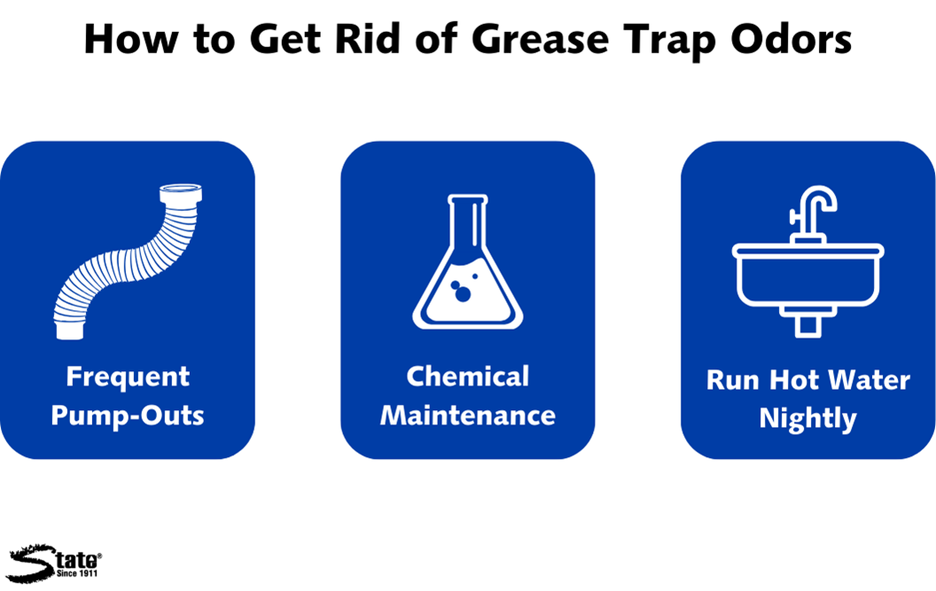
What Causes Grease Trap Odors?
The job of a grease trap is to collect items going down your sink that you don’t want in your drain lines. For example, if you’re running a fast-food restaurant, you probably can’t stop food particles and grease from going down your drains to some extent.
That’s where the grease trap comes in, limiting the amount of FOGs and other items that go down your drain so your system keeps flowing without clogs or backups.
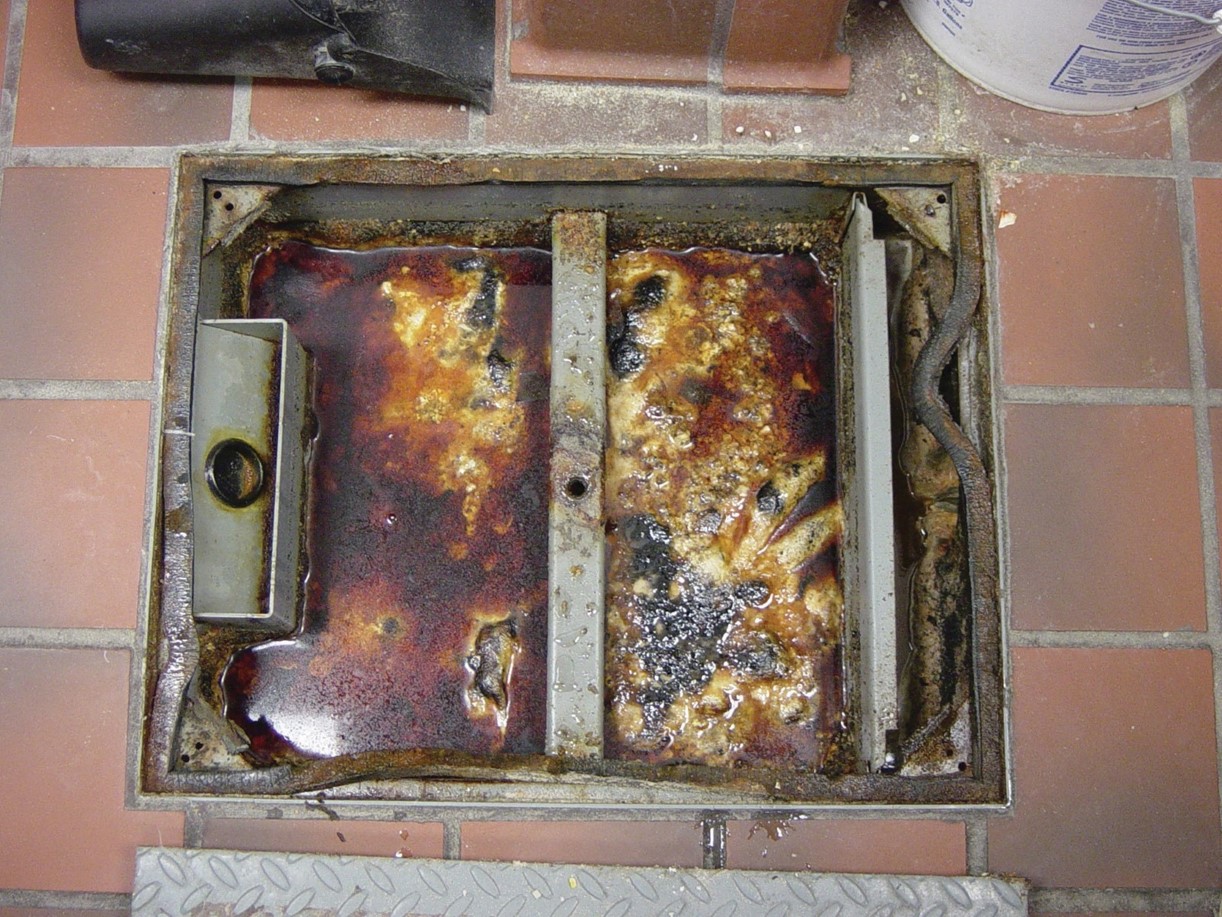
However, this leaves you with a box of rotting food scraps and grease—needless to say, this doesn’t usually smell very good. And this is where grease trap odors originate: the buildup in your grease trap.
Everything other than water that goes down your drain contributes to buildup, and buildup creates odors. While gross to deal with, there are ways to reduce buildup and in turn eliminate odors, making for a cleaner, better-smelling environment.
How to Get Rid of Grease Trap Odors
Grease traps must be maintained in order to function properly. If you don’t maintain them, you won’t only risk bad smells but also backups, clogs, and even rotting pipes. Fortunately, there are several ways to do this and treat these problems all at once.
Pump Out Your Grease Trap
Pumping your grease trap is necessary regardless of any chemical maintenance you may practice. After a while of normal drain usage, organics will build up in your grease trap, and the level will get too high to be safely contained in the grease trap. This will lead to foul odors, and if the buildup gets to the point that it starts overflowing from the grease trap into the pipes, you’ll also be dealing with clogs.
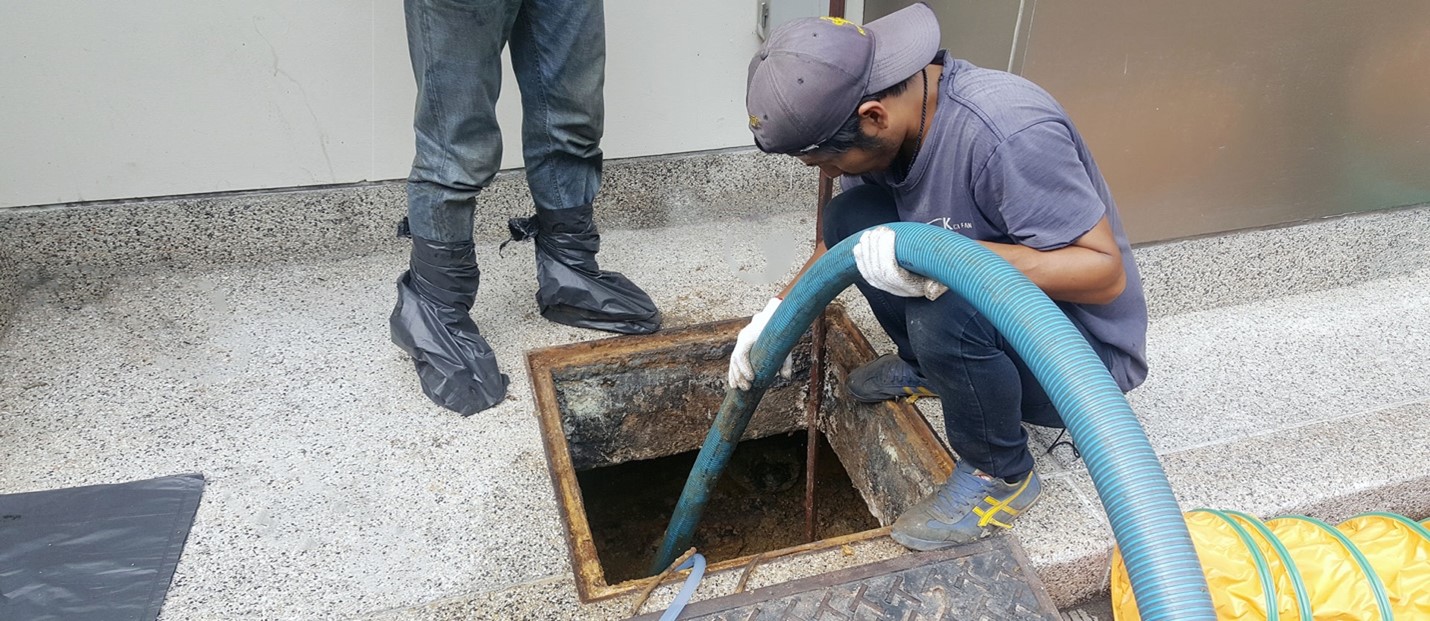
Not only can this create hazards for your facility, but many municipalities legally require facilities with grease traps to pump out at least once every three months. This protects your facility’s drainage system as well as the larger city sewer system. For this reason, when your grease trap gets to be about a quarter of the way full, it’s time to pump.
Through this maintenance, the buildup is removed, thus removing the source of your grease trap’s odors. Some residual odors may still be left over, and they’ll still be present with the increase in buildup between pump-outs, but removing the source is a good way to treat odors. If your odors aren’t too severe, this can be an effective method of odor control.
Practice Preventative Maintenance
The most effective way to eliminate odors and prevent future backups is to practice preventative maintenance. Pumping your grease trap is necessary to physically remove buildup, but by also using preventative maintenance, you can better control odors, reduce the frequency of pump-outs, and prolong your grease trap’s life.
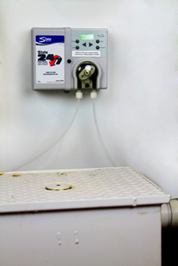
Grease trap maintainers are usually set up on a feed pump that dispenses the chemicals 24/7. The chemicals then break down buildup in the grease trap and continue to do so all the way through your pipes from that point on. This controls buildup (and by proxy, odors) in between grease trap pump-outs and can even reduce the frequency of pump-outs.
If you use a biological maintainer, the bacterial colony digests FOGs into water and air, lessening buildup. Meanwhile, if you use another maintainer, such as an emulsifier, the buildup will be liquified so that it easily passes through the pipes. In either scenario, the maintainer helps the buildup pass through the system with the water to keep the grease trap cleaner and with less odor.
By taking preventative steps now, you can eliminate your grease trap odors and lessen buildup before the issue expands into something worse.
Run Hot Water Down Your Sink Every Night
To further control buildup and eliminate odors, we also recommend running hot water down your sink each night. Preventative maintainers are great at breaking down buildup—but they only break it down starting from where they enter the drain line. Normally, this is not at the sink’s opening, so foods can still congeal in the pipes before they reach the maintainer.
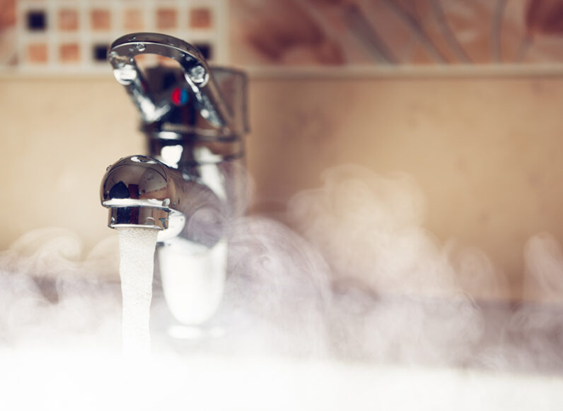
If you run hot water down your sink, you’re loosening the buildup to prevent odors and issues further up the line, which is just as important as treating your grease trap.
What Happens If I Don’t Maintain My Grease Trap?
The thing is, if you have grease trap odors, it’s indicative of buildup. If you don’t treat the odors, you’re also not treating the buildup.
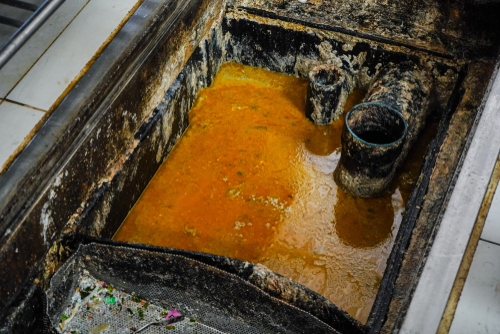
Untreated buildup can lead to slow drains and clogs, but if it gets bad enough, it can even lead to rotted pipes that will require costly, disruptive replacements.
Pump-outs can help with this, but ultimately, pump-outs may not fully prevent future issues. If your grease trap is pumped out regularly, it may be fine—but if your grease trap becomes too full in the time before a pump-out, collected FOGs could leak out through the pipes. Over time, this can create buildup further down the drain line, leading to persistent odors and other more severe problems.
Preventative maintenance is usually the best way to avoid these outcomes. It will get rid of bad odors that may deter customers, but by removing the odorous buildup, it will also keep your pipes clear and help the grease trap last longer.
Compare the Cost of Frequent Grease Trap Pump-Outs to Chemical Maintenance
Persistent grease trap odors are about as unpleasant as it gets. Now that you know how to get rid of these odors and simultaneously reduce buildup, read this article to compare the cost of frequent pump-outs to the cost of chemical maintenance.








